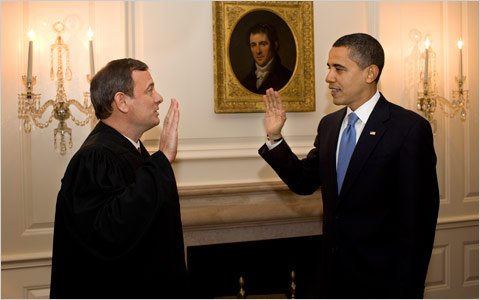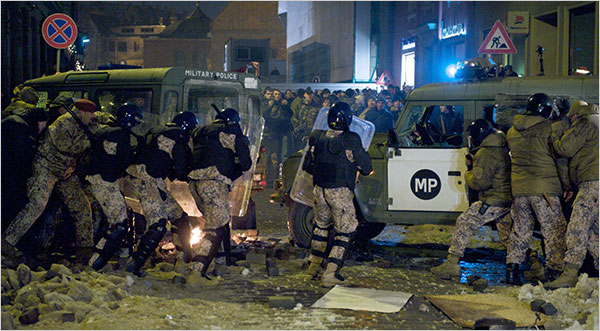Tories then and now
 Among the many discussions of yesterday's inaugural address, one that struck me was Eve Fairbanks' question "Why'd Obama Talk about George Washington?" She observes that "in the last half of the last century or so, George Washington was appropriated by right-wingers as 'their' founder"; and concludes that
Among the many discussions of yesterday's inaugural address, one that struck me was Eve Fairbanks' question "Why'd Obama Talk about George Washington?" She observes that "in the last half of the last century or so, George Washington was appropriated by right-wingers as 'their' founder"; and concludes that
I thought Obama ended his speech with Washington today in order to tweak his image. He's not here to change everything about America, or even to change everything that his progressive supporters don't like, the end of the speech said. He's here to safeguard it like the unflappable Washington, to "carr[y] forth that great gift of freedom and deliver … it safely to future generations."
This rings true — certainly the theme of continuity with America's political past was central to the speech, and I'm sure that the reaction of Ms. Fairbanks' conservative mother was not unanticipated:
[M]y staunchly Republican mom told me after watching Obama's speech that "one of the things that has always nagged at me about Obama, as a conservative, is, 'Does this man care about the founding? Does he even think about it?' So I was astonished to hear it invoked … the evocation of Washington was great." And the story Obama told about George worked perfectly in the moment: Its images of "shores of an icy river" and men huddled against the bitter cold feathered in with today's weather.
But it's worth remembering that the Washington of 1776 was the general of a revolutionary army, and the words that he ordered to be read to his men were written by Tom Paine, a radical agitator.
Read the rest of this entry »



